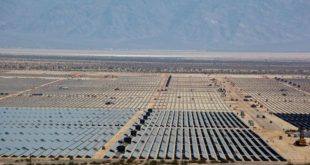Intelligent Energy to Showcase Zero Emission Range-Extended Light Commercial Vehicle at UK’s Low Carbon Vehicle Event
Leading independent fuel cell technology provider will display and demonstrate hybridised battery electric/fuel cell-powered development vehicle at LCV2015
- Prototype is the first stage in an on-going UK consortium project that is supported by funding from the Advanced Propulsion Centre (APC) to develop a new class of range-extended commercial vehicle
- Range extension capability provided by the fuel cell allows the vehicle to double the range of conventional urban driving without re-fuelling
- James Batchelor, managing director of Intelligent Energy’s Motive division, will speak on the fuel cell range extension of electric vehicles at the LCV2015 conference
A zero-emissions solution to making battery electric vehicles more user-friendly will be the centrepiece of energy technology group, Intelligent Energy’s presence at the 2015 Low Carbon Vehicle event, which takes place at Millbrook, UK, on 9-10 September.
The ZERE van – the name is an acronym for Zero Emissions Range Extender – demonstrates how fuel cell technology used for range extension can help overcome the disadvantages of poor range and long recharging times inherent in many battery electric vehicles. The fact that this is a light commercial application adds a further benefit: vans operating in a multiple destination, return to base pattern such as delivery duties in a metropolitan area are ideally suited to early adoption of fuel cell motive and range-extension power because a hydrogen refuelling structure is more easily installed.
The technologies used in ZERE – a fuel cell providing range extension capability to a factory-fitted battery electric driveline – are being further developed in an APC1-supported consortium project led by Intelligent Energy, with partners including Millbrook Proving Ground, Frost Electronics, Frost EV Systems, Cenex, British Gas and DHL. Taking advantage of direct input from fleet operators, the consortium will investigate the most effective routes to commercialisation, including the possibilities for installation during first manufacture and retro-fitment. This is a natural next step in maturing the technology featured in the prototype on display at LCV2015, which is largely the result of research and development activities carried out by Intelligent Energy prior to the APC-backed project being confirmed in March of this year. A second vehicle display at the event showcases how the consortium project is already making advances in refining the proposition for a new class of vehicle.
The ZERE vehicle is capable of extended continuous operation, improving productivity both by increasing range and reducing the daily dependency on lengthy downtime for charging that battery electric vans face. Unlike range extenders that use internal combustion engines, Intelligent Energy’s fuel cell solution ensures zero emissions operation is maintained, with only water vapour leaving the vehicle exhaust.
In addition to having two ZERE vans at LCV2015, Intelligent Energy will also be offering visitors the opportunity to experience its zero emissions fuel cell-powered London Taxi. Commissioned initially for use at the 2012 Olympic Games, a small fleet of the taxis has been undergoing operational trials in the capital since the event, accruing more than 100,000km covered.
Two unique motorcycles will also be on display. The ENV (Emissions Neutral Vehicle) was the world’s first fuel cell motorcycle; designed, engineered and built by Intelligent Energy it is powered by a fuel cell that uses the proprietary air-cooled technology. Following the ENV project, Intelligent Energy went on work in partnership with Suzuki to produce a Burgman scooter that remains the only fuel cell powered scooter homologated for use in Europe. Showcasing the company’s expertise in cost-effective air cooled fuel cell technology, the Burgman uses a 4kW fuel cell system that was designed by Intelligent Energy and is manufactured by its joint venture company with Suzuki.
Alongside the vehicles, Intelligent Energy will be showing a number of technology exhibits, including its new 100kW high power fuel cell architecture, which uses the company’s proprietary evaporatively cooled (EC) technology to deliver world-leading power density. By eliminating separate pumped cooling, EC technology enables the use of only one plate per cell instead of two, saving weight, cost and package space and enabling the high power density.
James Batchelor, the managing director of the company’s Motive Division, will address the LCV2015 audience on the use of fuel cells in range-extended applications, demonstrating how fuel cell technology can be implemented in the near term to deliver significant advances in low-carbon vehicle drivetrains.
1APC is the Advanced Propulsion Centre, which was formed in 2013 from a commitment between government and the automotive industry made through the Automotive Council to position the UK as a global centre of excellence for low carbon powertrain development and production.
 Alternative Energy HQ solar power for homes, wind energy, and bio fuel issues
Alternative Energy HQ solar power for homes, wind energy, and bio fuel issues









